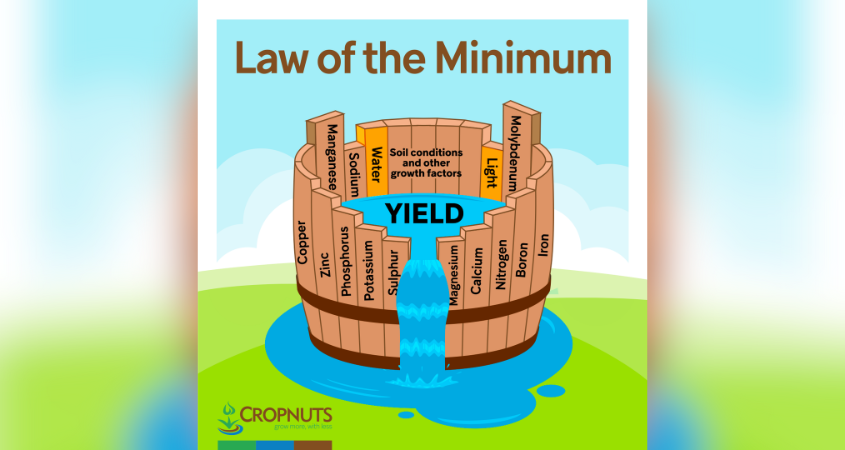
The Law of the Minimum, proposed by German scientist Justus von Liebig in the mid-19th century, is a principle in crop agriculture that states that plant growth is limited by the nutrient in shortest supply relative to the plant’s needs, even if all other essential nutrients are abundant.
In simpler terms, it suggests that the growth and productivity of a crop are determined not by the total amount of nutrients available in the soil, but by the scarcest nutrient. Therefore, even if a farmer provides ample amounts of other nutrients, if one essential nutrient is deficient, it will limit plant growth and yield potential.
This principle underscores the importance of balanced nutrient management in agriculture. Farmers must ensure that all essential nutrients are available in sufficient quantities to meet the needs of the crop, as deficiencies in any one nutrient can hinder overall productivity. Therefore, understanding and addressing nutrient deficiencies according to the Law of the Minimum is crucial for optimizing crop yields and achieving agricultural success.
Grow more with less
#savesoil #soilhealth #soilscience
Order our services and get to know how to improve your soil for better yeilds.